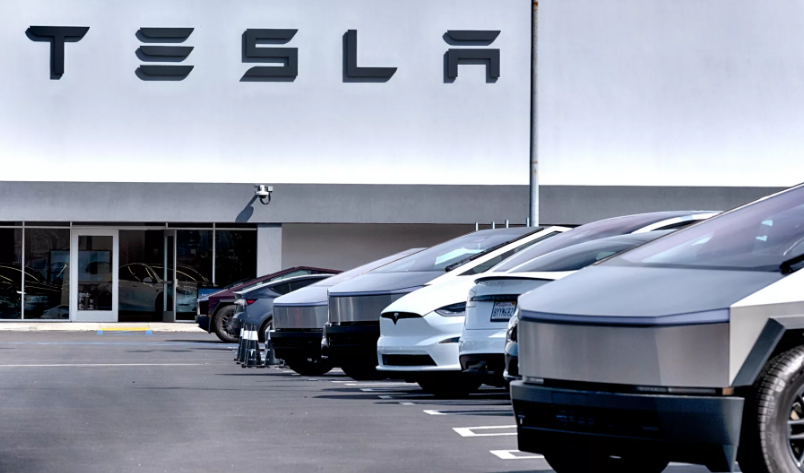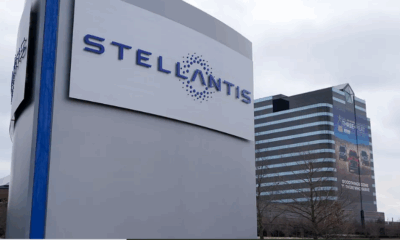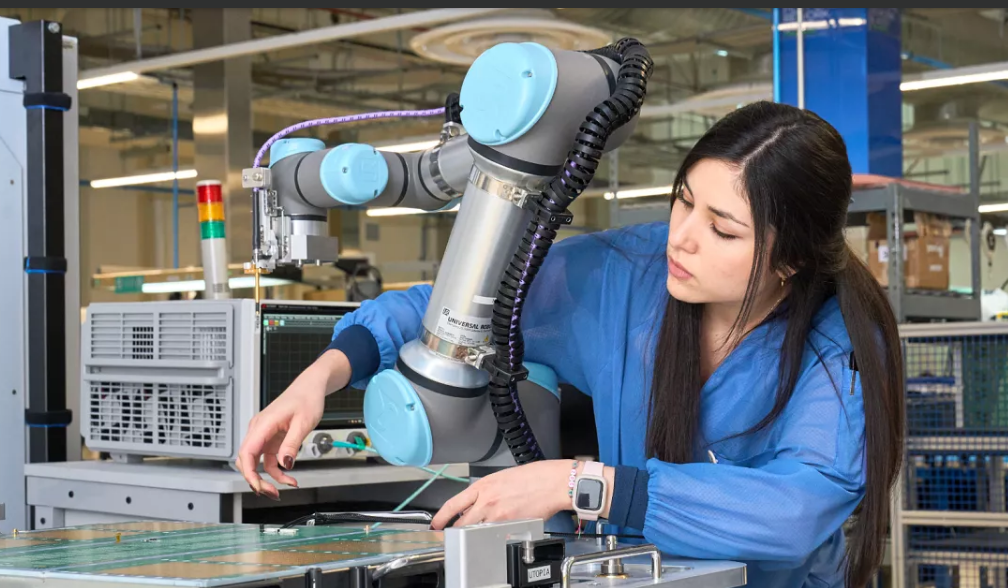Business
Musk Refocuses on Tesla After Profit Slump, Pledges Major Push on Autonomy

Elon Musk has announced he will reduce his involvement in government-related work and shift his attention back to Tesla, after the electric vehicle giant reported a sharp fall in profits and revenue for the first quarter of the year.
Speaking to analysts on a conference call Tuesday, Musk said he plans to spend “far more” time on Tesla starting in May, now that the initial phase of work on the Department of Government Efficiency (DOGE) is complete. “I’ll be allocating just a day or two per week to government matters,” Musk said, following months of public scrutiny over his role in the controversial agency.
Tesla’s financial results reflected the challenges Musk now faces. The company posted a 71% drop in profits, with net income falling from $1.4 billion to $409 million. Revenue declined 9% to $19.3 billion, missing Wall Street expectations. Tesla shares, which are down over 40% this year, rose more than 5% in after-hours trading following Musk’s remarks.
“Investors wanted to see him recommit to Tesla,” said Dan Ives, senior equity analyst at Wedbush Securities. “This is a big step in the right direction.”
Autonomous Future Still the Focus
Despite the weak earnings, Tesla reaffirmed ambitious plans for autonomous driving. The company confirmed it will launch a budget version of its Model Y SUV in the coming months and aims to begin a commercial robotaxi service in Austin by June. Musk claimed “millions of Teslas” could be operating autonomously by year-end.
“Can you go to sleep in our cars and wake up at your destination? I’m confident that will be available in many U.S. cities by the end of this year,” he said.
However, industry experts remain skeptical. “The system is not robust enough to operate unsupervised,” said Sam Abuelsamid, an analyst at Telemetry Insight. “It still makes far too many errors.”
U.S. regulators are also watching closely. Tesla’s Autopilot system and “Full Self-Driving” software are both under investigation by the National Highway Traffic Safety Administration over safety concerns.
Rising Global Pressure and Tariff Concerns
Tesla is also contending with fierce competition from Chinese automakers like BYD and growing backlash in Europe, where Musk’s political statements have alienated potential buyers. At home, new tariffs introduced by the Trump administration could affect Tesla’s supply chain and energy storage business, though the company emphasized its mostly domestic manufacturing footprint as a buffer.
Tesla has also halted orders for two models in mainland China amid trade tensions. Nonetheless, it saw a boost from regulatory credit sales, which brought in $595 million for the quarter—up from $442 million a year ago. Positive free cash flow of $2.2 billion provided one bright spot in an otherwise turbulent period.
Looking ahead, Tesla will need to deliver on its autonomy promises and win back market share in a rapidly evolving EV landscape.
Business
European Steel Stocks Slide as Trump Tariff Hike Boosts U.S. Rivals

Shares of leading European steel producers dipped on Tuesday as markets reacted to former U.S. President Donald Trump’s plans to double tariffs on steel and aluminium imports, escalating concerns of renewed global trade tensions.
Trump’s proposal, which would increase existing tariffs from 25% to 50%, is set to take effect on June 4. The move has already jolted steel markets, sending European steel stocks lower while fueling gains among American producers. Trump defended the decision on his social media platform, Truth Social, declaring the measure a boost for U.S. industry: “Our steel and aluminum industries are coming back like never before. This will be yet another BIG jolt of great news for our wonderful steel and aluminum workers.”
European investors appeared less optimistic. German steelmaker Thyssenkrupp saw its shares fall 0.5% on the Frankfurt Stock Exchange on Tuesday, while Salzgitter AG slipped 0.4%. ArcelorMittal, one of the world’s largest steel manufacturers, dropped 1.1% on the Euronext Amsterdam. Austria’s Voestalpine AG also registered a 0.8% decline in Vienna.
Conversely, U.S. steel stocks rallied sharply following the announcement. Cleveland-Cliffs surged 23.2%, while Nucor and Steel Dynamics rose 10.1% and 10.3% respectively by Monday’s close, as investors bet on improved prospects for domestic producers shielded from international competition.
Despite the short-term boost for U.S. steel firms, the tariff hike has sparked fresh concerns about the broader economic consequences. Economists warn that the protectionist approach could backfire, raising costs for U.S. industries that rely heavily on imported aluminium and steel — particularly in the automotive and construction sectors.
Felix Tintelnot, professor of economics at Duke University, said the uncertainty surrounding such policy shifts makes long-term investment risky. “We’re talking about expansion of capacity of heavy industry that comes with significant upfront investments, and no business leader should take heavy upfront investments if they don’t believe that the same policy [will be] there two, three, or four years from now,” he told TIME.
Tintelnot further cautioned against setting trade policies unilaterally, emphasizing the need for a predictable economic framework. “Regardless of whether you’re in favour [of] or against these tariffs, you don’t want the President to just set tax rates arbitrarily, sort of by Executive Order all the time,” he said.
As global markets assess the potential fallout, the European steel industry may be bracing for more volatility, while U.S. manufacturers weigh the longer-term impact of a possibly inflationary policy shift.
Business
European Markets Slide as U.S.-China Tariff Tensions Escalate

European stock markets slipped on Monday afternoon as renewed trade tensions between the U.S. and China unsettled investors, reigniting fears of a prolonged global trade dispute.
By 13:05 CEST, all major European indexes were trading in negative territory. The EURO STOXX 50 had dropped 0.68%, Germany’s DAX was down 0.48%, and France’s CAC 40 had fallen by 0.63%.
The downturn followed comments from Beijing accusing the United States of “severely violating” the terms of their recent trade agreement, prompting concerns of a fresh round of retaliatory measures. Investors were also reacting to U.S. President Donald Trump’s announcement that tariffs on steel and aluminium imports would be doubled from 25% to 50% starting Wednesday.
“Donald Trump has upset markets once again,” said Russ Mould, investment director at AJ Bell, in a note shared with Euronews. “Doubling import taxes on steel and aluminium, and aggravating China once again, mean we face a situation where uncertainty prevails. Trump’s continuous moving of the goalposts is frustrating for businesses, governments, consumers, and investors.”
Market sentiment soured across Europe and Asia, with futures suggesting a similarly weak open for Wall Street later in the day. In response to rising uncertainty, investors turned to safe-haven assets, giving gold a boost.
U.S. Market Outlook Mixed
While U.S. equity markets ended May relatively flat, major indices posted solid gains over the month, lifted by earlier optimism around easing trade tensions. However, that sentiment is now under pressure.
“The latest broadsides from the White House were primarily directed at China and the EU, with both threatening a response in kind to any further tariff hikes,” said Richard Hunter, head of markets at Interactive Investor.
Still, there were some encouraging economic signals. The Federal Reserve’s preferred inflation gauge, the Personal Consumption Expenditures index, came in lower than expected, while consumer sentiment surprised on the upside. Analysts caution, however, that these may be temporary reprieves.
Looking ahead, attention is turning to U.S. non-farm payroll data due at the end of the week. Economists forecast 130,000 new jobs added in May, down from 177,000 the previous month, with unemployment expected to hold at 4.2%.
Despite recent gains, U.S. markets remain fragile. Year-to-date, the Dow Jones is down 0.6%, the Nasdaq 1%, while the S&P 500 has managed a modest 0.5% rise, bolstered in part by strength in large-cap tech stocks.
Asian Markets Also Weigh Trade and Geopolitics
Asian markets also came under pressure. The Hang Seng index fell amid renewed concerns over U.S. tariffs and geopolitical uncertainty stemming from ongoing Russia-Ukraine tensions.
Mainland China’s markets were closed for a public holiday, but investors expect potential losses upon reopening, particularly after recent data showed further contraction in factory activity.
With trade tensions heating up again, global markets are bracing for a volatile start to June.
Business
Costa Rica Emerges as High-Tech Powerhouse with Sustainable Growth Model
-

 Business1 year ago
Business1 year agoSaudi Arabia’s Model for Sustainable Aviation Practices
-

 Business1 year ago
Business1 year agoRecent Developments in Small Business Taxes
-

 Politics1 year ago
Politics1 year agoWho was Ebrahim Raisi and his status in Iranian Politics?
-

 Business11 months ago
Business11 months agoCarrectly: Revolutionizing Car Care in Chicago
-

 Business11 months ago
Business11 months agoSaudi Arabia: Foreign Direct Investment Rises by 5.6% in Q1
-

 Technology1 year ago
Technology1 year agoComparing Apple Vision Pro and Meta Quest 3
-

 Politics1 year ago
Politics1 year agoIndonesia and Malaysia Call for Israel’s Compliance with ICJ Ruling on Gaza Offensive
-

 Sports10 months ago
Sports10 months agoKeely Hodgkinson Wins Britain’s First Athletics Gold at Paris Olympics in 800m



























